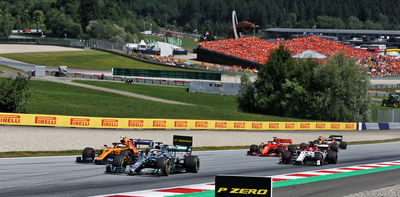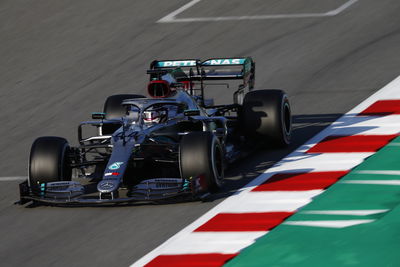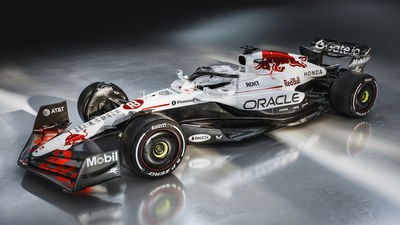Wolff explains why Mercedes is against F1 reverse grid “gimmick”
Mercedes boss Toto Wolff says Formula 1 does not need a “gimmick” in the form of reverse-grid races in order to make the sport more exciting.
Last week F1 and the 10 team principals discussed the idea of running sprint-style qualifying races set by reverse championship order during the second weekend of double-header events this season to determine the grid for the main grand prix on Sunday.

Mercedes boss Toto Wolff says Formula 1 does not need a “gimmick” in the form of reverse-grid races in order to make the sport more exciting.
Last week F1 and the 10 team principals discussed the idea of running sprint-style qualifying races set by reverse championship order during the second weekend of double-header events this season to determine the grid for the main grand prix on Sunday.
While the majority of teams backed the proposal, it was ultimately rejected after Mercedes opposed the initiative. Wolff has since outlined Mercedes’ reasoning for blocking the idea, citing fears that races could be open to manipulation.
“There seems to be a common pattern in Formula 1, diffing out old ideas that had been analysed thoroughly and rejected and then somebody thinks it’s great and it’s back on the agenda,” Wolff said.
“Then you need to look at the reasons why we were against it and there are three fundamental reasons.
“I believe Formula 1 is a meritocracy, the best man in the best machine wins; we don’t need a gimmick to turn the field around and create more exciting racing.
“Number two, I know it from touring car racing, that strategies become a very useful tool when one race result is basically making up the grid for the next one.
“Just imagine one of the drivers not running well on the Sunday race of the first Spielberg weekend, you decide to DNF the car and that becomes the car that starts on pole for the qualifying race on the second weekend.
“And if that car starts on pole for the qualifying race, among midfielders, then he’ll certainly be on pole for Sunday and win the race. There will be cars in the middle that will defend and block as much as they can and, therefore, for the cars coming from behind, there will be more risk for a DNF and that could influence the championship.
“And then, from a pure performance standpoint, whoever has the faster car, not necessarily us, will be penalised towards the second and third quickest teams, because they will simply start in front.
“And, as we know, the margins are not very large, so, therefore, it’s a bit of an opportunistic move to give some teams an advantage.”
F1 CEO Chase Carey insisted the sport’s rule-makers have no plans to introduce “gimmicks” this season but confirmed that talks over how the traditional weekend format can be revised will continue.
“We’ve had discussions in the past couple of years about should we look at ways to make some changes that honour the sport, respect what has made the sport great but we think would be changes that would enhance the experience for fans,” he explained.
“We’ll continue to look at ideas. We want to make sure they’re not gimmicks. It’s a great sport with great history, great heroes, great stars, incredibly talented drivers and other individuals so we want to respect everything to a degree but we want to make sure that doesn’t mean we wouldn’t look at ways to make some changes.
“To some degree, this season being unique gives a little bit more opportunity to try something that I don’t think we would do unless we thought it was a real possibility to add something to the race.
“But I think we’ll continue [talks] but it won’t be unique to this. I think we always want to be challenging ourselves and [looking at whether] there other things we can do to make the sport better.”












